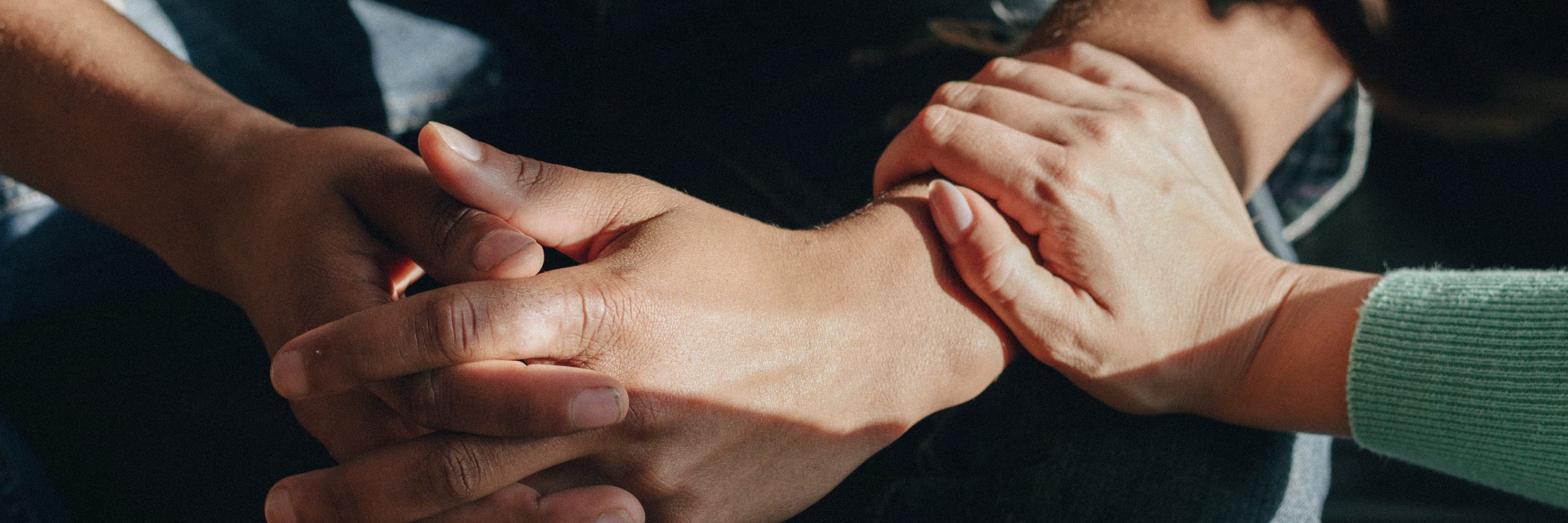
Heal Sexual Trauma With Sexual Trauma Therapy
Any experience of sexual trauma can have life-altering consequences. It can cause deep distress, as well as psychological difficulties such as post-traumatic stress disorder (PTSD), anxiety, and depression. While these are challenging to deal with, it’s possible for survivors to heal and move on from the traumatic event. Most people need some form of professional mental health support. This article will go through some of the basics of sexual trauma and discuss how survival can best manage the aftereffects.

Understanding Sexual Trauma
Sexual trauma is a complex phenomenon that encompasses a broad range of symptoms and challenges. It can result from any type of sexually inappropriate experience and often leads to long-lasting psychological changes.
What Is Sexual Trauma?
The term sexual trauma refers to any adverse psychological reaction to experiencing some form of sexual violence. Sexual trauma affects everyone differently — some might have comparatively milder symptoms, while others may struggle with debilitating psychological distress.
Types of Sexual Trauma
- Sexual assault
- Child sexual abuse
- Statutory rape
- Intimate partner sexual violence
- Verbal sexual abuse
- Sexual harassment
Common Myths and Misconceptions of Sexual Trauma
- Victims can in any way provoke sexual violence.
- Sexual violence is most often committed by strangers.
- Victims always try to fight off the perpetrators.
- Only stereotypically attractive people get targeted.
- People often lie about being sexually assaulted.
The Impact of Sexual Trauma
Sexual trauma often has a strong negative impact on survivors. While the resulting challenges can be difficult to deal with, they can be managed and overcome with the right support.
Physical and Emotional Effects
It’s common for survivors to develop mental health issues such as depression, panic attacks, and PTSD. Sleep problems and eating disorders can also occur as a result of sexual trauma. In some cases, survivors may experience physical damage from the traumatic event or get a sexually transmitted infection.
Behavioral Changes
Due to the traumatic nature of sexual violence, survivors often develop some behavioral changes after the event. These can include avoiding certain situations and developing agoraphobia. Many survivors also develop issues with substance abuse.
Impact on Personal Relationships
Those struggling with sexual trauma may find that they have trouble maintaining their close, personal relationships. They might find it hard to trust others, which can lead them to avoid their friends, family members, and romantic partners.

Heal From Sexual Trauma
As sexual trauma can deeply affect the course of one’s life, it’s essential that survivors are given enough support to heal and thrive.
Seeking Help and Support
Sexual trauma can feel deeply isolating. As a response to that, survivors may turn inward and avoid emotional connection with their loved ones. However, seeking emotional support from those close to them, such as family and friends, can be a deeply healing experience and a good way to start rebuilding a sense of safety in their environment.
Professional Therapy and Treatment Options
While loved ones often do their best to help, in most cases, they’re not equipped to handle the intense challenges of healing after serious trauma. Thus, professional psychological support is the best course of action for most survivors. Clinicians typically use scientifically proven modalities such as cognitive behavioral therapy (CBT), dialectical behavioral therapy (DBT), and eye movement desensitization and reprocessing (EMDR) to assist patients in their recovery.
Coping Strategies and Self-Care Practices
Some coping techniques can provide relief from the emotional distress that accompanies sexual trauma. Journaling, meditation, and somatic exercises can all improve mental health symptoms. Please note that trauma cannot be healed in isolation, so these techniques should be used in addition to professional treatment.

Preventing Sexual Trauma
It’s important to emphasize that survivors are never to blame for experiencing sexual trauma, and fault always lies with the perpetrator. However, there are some wider-scale approaches that can work to minimize the occurrence of sexual violence in society at large.
Understanding and Recognizing Consent
Consent is what differentiates mutual sexual encounters from assault. At its core, it’s a freely given agreement to participate in some sexual activity. Consent cannot be given under threat or intimidation — or by underage, intoxicated, or unconscious people. It’s only valid for the specific activities that have been agreed upon and can be withdrawn at any time. Having a thorough understanding of consent can make it easier for people to navigate dangerous situations and help them look out for others in their community.
Addressing Rape Culture and Societal Attitudes
Sociologists pose one of the key reasons behind the prevalence of sexual assault is the prevailing rape culture. This includes not believing victims, supporting perpetrators, and the fact that sexual violence accusations rarely result in a prison sentence. Social initiatives can end the trivialization of sexual abuse and lead to a decrease in cases.
Creating Safe Spaces and Supportive Communities
Isolation makes people more vulnerable to sexual violence. Thus, supportive and inclusive communities are key for minimizing the occurrence of sexual assault and helping survivors cope and learn to flourish.

Supporting Survivors of Sexual Trauma
While the consequences of sexual trauma can be truly devastating and typically require professional help, everyone can do their part in supporting survivors in their respective communities.
Understanding Survivor Experiences
Everyone can benefit from learning about the effects sexual trauma has on individuals. This understanding can help people better support the survivors in their lives.
Listening and Validating Survivor Stories
Every survivor has their own unique experience — and it rarely matches the stereotypical representations of sexual violence most people see in media. That’s why it’s essential that friends and family members listen to survivors and make genuine attempts to understand where they are coming from when they discuss their experiences.
Offering Practical Support and Resources
While listening and offering emotional support can go a long way, it’s rarely enough to undo the devastating effects of trauma. Friends and relatives who feel the survivor in their life is experiencing significant distress should refer them to specialist help instead of trying to shoulder the emotional weight of their recovery.
Learn More About Trauma-Focused Therapy at Beachway
Beachway specializes in mental health, substance abuse, and dual-diagnosis treatment and provides a range of options tailored to the unique needs of each patient. Beachway aims to offer hope and a road to healing for survivors in need of psychological help and emotional support.



